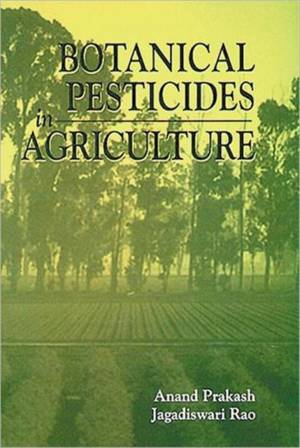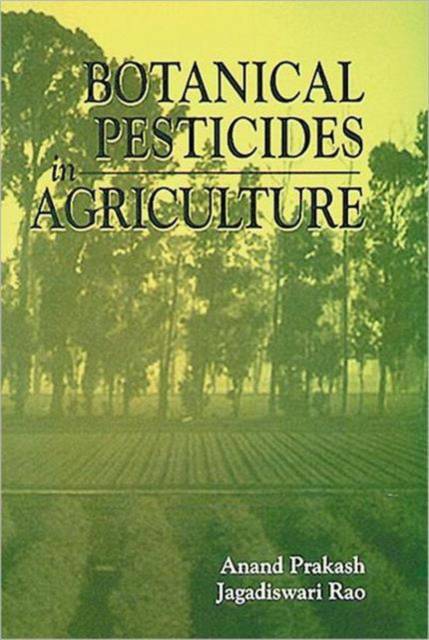
Door een staking bij bpost kan je online bestelling op dit moment iets langer onderweg zijn dan voorzien. Dringend iets nodig? Onze winkels ontvangen jou met open armen!
- Afhalen na 1 uur in een winkel met voorraad
- Gratis thuislevering in België vanaf € 30
- Ruim aanbod met 7 miljoen producten
Door een staking bij bpost kan je online bestelling op dit moment iets langer onderweg zijn dan voorzien. Dringend iets nodig? Onze winkels ontvangen jou met open armen!
- Afhalen na 1 uur in een winkel met voorraad
- Gratis thuislevering in België vanaf € 30
- Ruim aanbod met 7 miljoen producten
Zoeken
€ 310,95
+ 621 punten
Omschrijving
Due to the prohibitive cost of synthetic pesticides and the problems of environmental pollution caused by continuous use of these chemicals, there is a renewed interest in the use of botanicals for crop protection. Agricultural entomologists, nematologists, and pathologists the world over are now actively engaged in research into the use of plants to fight agricultural pests and diseases, and to reduce the losses caused by them.
Botanical Pesticides in Agriculture reviews the research on botanical pesticides used to combat losses due to pests of agricultural importance, with special attention focused on the use of higher plants. This book will serve as the baseline reference work for future research, and many of the botanicals discussed, such as neem, bael, begonia, pyrethrum, tobacco, karanj, and mahuwa, may become integral parts of pest control programs currently being developed. It is believed that botanical pesticides will minimize the undesirable side effects of synthetic pesticides and help preserve the environment for future generations.
Botanical Pesticides in Agriculture reviews the research on botanical pesticides used to combat losses due to pests of agricultural importance, with special attention focused on the use of higher plants. This book will serve as the baseline reference work for future research, and many of the botanicals discussed, such as neem, bael, begonia, pyrethrum, tobacco, karanj, and mahuwa, may become integral parts of pest control programs currently being developed. It is believed that botanical pesticides will minimize the undesirable side effects of synthetic pesticides and help preserve the environment for future generations.
Specificaties
Betrokkenen
- Auteur(s):
- Uitgeverij:
Inhoud
- Aantal bladzijden:
- 476
- Taal:
- Engels
Eigenschappen
- Productcode (EAN):
- 9780873718257
- Verschijningsdatum:
- 18/11/1996
- Uitvoering:
- Hardcover
- Formaat:
- Genaaid
- Afmetingen:
- 156 mm x 234 mm
- Gewicht:
- 839 g

Alleen bij Standaard Boekhandel
+ 621 punten op je klantenkaart van Standaard Boekhandel
Beoordelingen
We publiceren alleen reviews die voldoen aan de voorwaarden voor reviews. Bekijk onze voorwaarden voor reviews.











